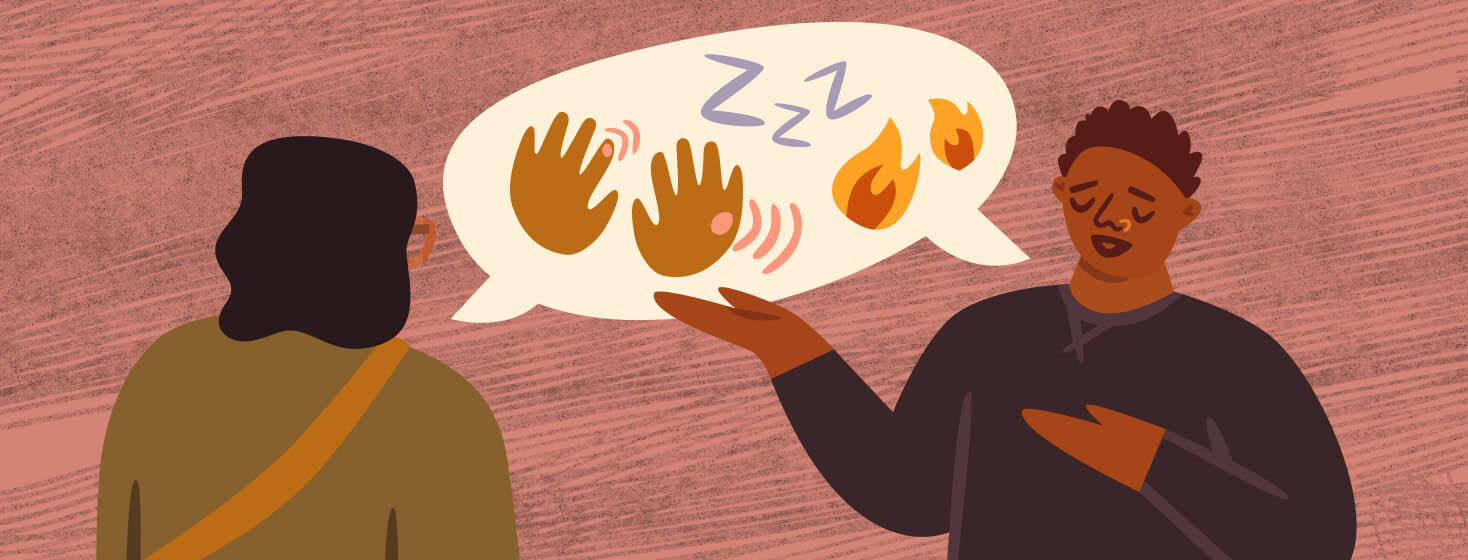The Added Pains of Explaining Psoriatic Arthritis
It is hard enough to live with the physical challenges of psoriatic arthritis (PsA) like fatigue, pain, and stiffness. However, having to frequently explain the reason for your symptoms and what PsA actually is can bring another set of challenges.
Often, explaining PsA can feel invalidating because so many people do not understand the condition. However, it is important for continuing to raise awareness about the disease.
Let the community explain
To find out more about the added pains of explaining your diagnosis, we turned to community members and asked them to share their experiences. We asked followers of our Psoriatic-Arthritis.com Facebook page to answer: “Do you find it is hard or easy to explain PsA to others?”
A number of community members responded, and here is what they shared.
Psoriatic arthritis is not the same as arthritis
Many community members shared that others fail to understand that PsA is not the same as osteoarthritis or rheumatoid arthritis. Too often, friends and family dismiss the significance of PsA with flippant comments about their own arthritis symptoms. The lack of understanding can be frustrating and emotionally draining.
“Very difficult, particularly when they say, ‘Oh, I have arthritis too, but I do not let it slow me down.’”
“Usually it is hard to explain. My neighbors see me limping at the beginning of a walk, then half an hour later I am walking at a slow but normal pace. I say arthritis. They assume it is osteo.”
“When someone starts in about how much their finger hurts when it gets cold, I flat out stop talking.”
“They do not understand. They think it just makes you ache a bit but you are fine.”
“No, because people think it is normal arthritis aches and pains. When you try to describe flares, people glaze over it.”
“It is very difficult. People say, ‘Oh yeah, I have arthritis too!’”
Explaining psoriatic arthritis is an autoimmune disease
Many find referring to PsA is an autoimmune disease rather than using the word “arthritis” to communicate more clearly the nature of the disease. While this is an overly simple explanation of PsA, this language sometimes helps others recognize the gravity of the condition.
“I refer to it as an autoimmune disease and not arthritis.”
“If explaining PsA to someone, I try to start off by saying I have an autoimmune disease before mentioning the word arthritis. It is impossible for most people to understand the variability of the symptoms.”
“I tend to refer to it as having an autoimmune disease rather than arthritis so that people actually listen.”
“I think it (an autoimmune disease) allows for a far greater conversation than using the word arthritis. We are not just talking about an ache in a joint after all, which is a generalized belief about what arthritis is. We are talking about a systemic inflammatory disease.”
Psoriatic arthritis is an invisible illness
If you live with an invisible illness like PsA, you might be used to others doubting your symptoms and accusing you of faking or imagining your condition. Dealing with flares while still “looking fine” can feel lonely and difficult.
Others may even make comments like, “You are still sick?” or “I am sure you will be fine soon.” For many with PsA, these misconceptions are an added burden.
“It is hard to explain fatigue, etc. when you look OK.”
“Those of us with this disease have learned to hide a lot of our pain.”
“I have been accused of making up excuses when I need to bail from some event at the last minute.”
“They do not understand the entire effect on the body, that there is so much more involved than just ‘sore joints’ – especially when you look ‘put together’ on the outside.
Being told you are too young for psoriatic arthritis
Those who are diagnosed at a younger age often find it hard for others to take their PsA diagnosis seriously. You might have been told, “But arthritis affects older people.” Having to explain the condition itself, along with the fact that it often affects young people, can feel like a chore.
“What I get a lot is, ‘No, you are too young to have arthritis.’ They hear arthritis, and they automatically think it is for someone older.”
“I was diagnosed when I was 27 so I was ‘too young’ to have arthritis, I must have just pulled something. I know people think I am lying, so I had to start showing off my swollen hands and wrists to prove I was not.”
Finding support for psoriatic arthritis
While most struggle with explaining PsA and having others understand, some do have close family or friends who are supportive. Surrounding yourself with people who validate you can be one of the most important parts of your journey.
“I have a great family. They do understand. I also have a great Facebook family. They also understand. No one else matters.”
“I find my friends are mostly gracious when it comes to explaining, but it is hard to always have to!”
“My sweet husband is very understanding.”
“Thankfully, I have an incredibly supportive partner who stays in the know,and that makes the world of difference!”
Thank you!
Psoriatic arthritis can easily become the elephant in the room. You may find yourself trying to figure out how to explain the condition to people close to you. Or friends and loved ones may be wondering how to tactfully ask you about it.
Thank you to everyone who shared their experiences for this story. This helps others in the PsA community feel supported and understood.
What is it like for you when explaining psoriatic arthritis? Please share with us!

Join the conversation